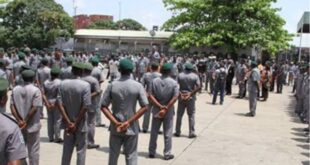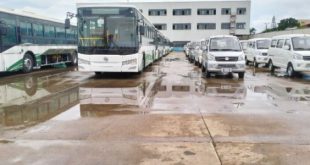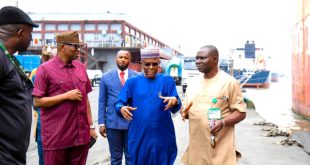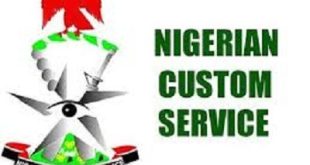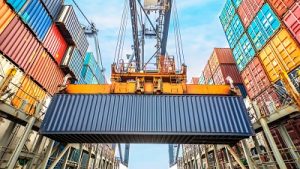
To curb the challenges in developing a dry port, Inland Containers Nigeria Limited (ICNL), operators of the Kaduna Dry Port, has called on the Federal Government to extend another rail track, and also purchase more locomotives and wagons to boost its operations.
This, according to the firm, will accommodate more goods and be able to meet up with the demand of users as the Nigerian Railway Corporation (NRC) could only boast of few wagons and locomotives to move cargoes up north.

The Inland Container Depots otherwise known as Dry Port, was conceived as part of solution to the problem of inadequate access by hinterland shippers seaports and frequent congestion. The frequent congestion at seaports had led to the loss, carnage, and accidents of cargo in transit on land mode.
The Managing Director of ICNL, Ismail Yusuf, told The Guardian that only 20 per cent of their request is met by the railway corporation; a situation that made him ask what will happen if the dry port finally begins operation that will require more volume of cargoes?.

He said: “Nigerian Railway Corporation as agency of Federal Government needs to improve on areas such as: provision of locomotive engines and more wagons and we also want them to improve on the maintenance of their tracks so that their efficiency and effectiveness will increase so as to meet up with demand of the users of the rail.
The Director of Operations, NRC, Adeniyi Alli linked the to a function of demand and supply which according to him, is as a result of the increase on the use of the rail network.He affirmed that the corporation lacks the capacity to meet up with the increase in demands of users.
However, to tackle the inadequate number of locomotives and wagons to meet the growing demand of rail services, Alli told the Guardian that the agency is refurbishing its equipment using it internally generated revenue (IGR).
“Obviously, our capacity to meet our demand has now reduced because we don’t have the number rolling stock that is required to meet that increase in demand.
“The truth of the matter is a function of supply and demand. What happened is that over the last two years, as a result of our successful operation, the demand for our services has increased substantially; a lot of people are now moving goods both from the south to the north and them from the north to the south.
“So from our findings, all our wagons up north that used to come back empty now come back with items such as animal feed, soya bean feed etc. . As our demand has increased, demands for our services too has increased.
“However, on the NRC side, what we are doing pending that decision or process by government, we are looking inwards to see the number of wagons we can actually repair by ourselves so that we can increase our capacity to continue to meet the growing demand for our services. We are refurbishing our own wagons using our internally generated revenue to do that. We will not stop; we are going to ensure that we continue to try to meet the demands of Nigerians,” he said.
He added that the ongoing concession process that the federal government has embarked on will result in the additional infrastructural development and necessary upgrade that are required to meet the needs of Nigerians.
 MMS PLUS NG – Maritime, Aviation, Business, Oil and Gas News Online Newspaper with coverage in Maritime, Oil and Gas, Aviation, Power and Energy as well as Financial News
MMS PLUS NG – Maritime, Aviation, Business, Oil and Gas News Online Newspaper with coverage in Maritime, Oil and Gas, Aviation, Power and Energy as well as Financial News





